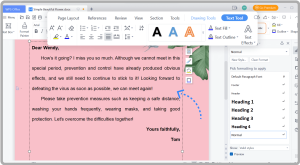In the ever-evolving digital landscape, the need for high-quality, engaging, and timely content has never been greater. Businesses, marketers, writers, and entrepreneurs alike face the ongoing pressure of producing large volumes of content to remain visible, competitive, and relevant. Whether it’s web copy, blog posts, product descriptions, or social media captions, the demand is relentless. Traditional writing processes, while valuable, often fall short in terms of speed, scalability, and efficiency. Enter the AI writer – a transformative tool that is reshaping how content is created across industries.
An AI writer refers to a technology-driven tool powered by artificial intelligence, specifically designed to generate written content. These tools are trained on vast data sets and natural language processing models, allowing them to understand context, tone, style, and structure. The result is a tool capable of producing coherent, well-formed text across a wide variety of topics and formats. But the advantages of using an AI writer go far beyond simple convenience.
One of the most immediate benefits is the significant time-saving aspect. Traditional writing involves brainstorming, outlining, drafting, editing, and proofreading – a process that can take hours or even days depending on complexity. An AI writer can produce a first draft within minutes, offering a solid foundation that the human user can then refine or expand. This rapid turnaround is particularly valuable in fast-paced environments such as newsrooms, marketing agencies, or e-commerce operations, where speed can determine competitiveness.
Closely tied to speed is the advantage of scalability. For businesses looking to expand their content output – for instance, to populate a large website, run multi-channel campaigns, or maintain an active blog schedule – an AI writer provides the ability to generate content at scale without needing to hire additional staff or exhaust internal resources. It acts as a highly efficient assistant that can generate multiple variations or pieces on the same topic, helping businesses maintain content freshness without burning out creative teams.
Another key advantage is consistency. An AI writer can be trained or configured to follow specific tone, style, and formatting guidelines, ensuring that all content aligns with brand identity. This is particularly useful for larger organisations where content is produced by multiple team members or departments. With an AI writer, the tone of voice remains uniform, which helps build trust and familiarity with the audience. The risk of off-brand or inconsistent messaging is greatly reduced, and content managers can spend less time on revisions or rewriting.
AI writers also offer valuable support for ideation and overcoming creative blocks. Even the most experienced writers occasionally struggle to get started or feel uninspired. In such situations, an AI writer can generate topic suggestions, outlines, or sample paragraphs that kickstart the creative process. It provides a neutral starting point from which writers can take direction, saving time otherwise spent staring at a blank page. For solo content creators or small businesses without access to editorial teams, this boost can make a meaningful difference.
Language support is another area where AI writers excel. Many tools are capable of generating content in multiple languages or translating existing content, which opens the door to global audiences. For businesses looking to expand internationally or serve multilingual markets, this capability is invaluable. It removes the barrier of language fluency and reduces the need for external translation services, streamlining international content strategies.
SEO optimisation is yet another area where AI writers can provide a strategic edge. Many AI writing tools are built to understand keyword placement, readability, meta descriptions, and other on-page SEO elements. This means the content produced is not only reader-friendly but also aligned with search engine algorithms. By using an AI writer to generate optimised content, businesses can improve their visibility in search results and drive more organic traffic, all while reducing the manual effort typically associated with keyword research and SEO writing.
Cost-efficiency also cannot be ignored. Hiring skilled writers, editors, and content strategists can be expensive – and rightly so, given the value they provide. However, not all projects require the same level of investment. For tasks like generating product descriptions, FAQs, email templates, or repetitive content, an AI writer can handle the bulk of the work, allowing human writers to focus on high-impact, strategic tasks. This redistribution of effort ensures that budgets are allocated more efficiently while still meeting content production needs.
Another subtle but powerful benefit of using an AI writer is its ability to adapt. Unlike static templates or rigid writing frameworks, AI writers continuously learn and improve over time. Some can be fine-tuned based on user feedback, becoming more aligned with specific goals, industries, or customer personas. This adaptability means that the longer you work with an AI writer, the more effective and personalised the content becomes. It’s not just a one-size-fits-all solution but a dynamic partner in your content strategy.
AI writers are also proving valuable for accessibility. Individuals with learning differences, non-native English speakers, or those with limited writing experience can use these tools to express ideas more clearly and confidently. It empowers a broader group of people to participate in content creation, levelling the playing field in digital communication. For teams with varying skill levels, this inclusivity helps ensure that everyone can contribute meaningfully to projects without feeling held back by writing proficiency.
While the advantages are many, it’s important to acknowledge the role of human oversight. An AI writer is a tool, not a replacement for human creativity, critical thinking, or deep subject knowledge. The best outcomes occur when the tool is used in collaboration with a skilled human editor or strategist. The AI can generate structure and substance, while the human adds nuance, emotion, and originality. This partnership enables faster, better content creation without sacrificing quality or authenticity.
In editorial workflows, the AI writer can also be used to repurpose content. A blog post can be turned into a press release, a series of tweets, or a newsletter with minimal manual rewriting. This ability to extend the life and reach of existing content reduces duplication of effort and ensures that messaging remains consistent across formats and platforms. It supports a more agile and integrated content marketing approach.
In industries where compliance and documentation are important, such as legal, financial, or healthcare, an AI writer can help draft structured, accurate, and clear documents based on input data. While final review by qualified professionals is still necessary, the drafting process becomes significantly more efficient, allowing teams to produce high volumes of documentation without compromising regulatory requirements.
From a data-driven perspective, some AI writers can analyse previous content performance and suggest improvements or alternative phrasing based on engagement metrics. This feedback loop allows writers and marketers to continuously refine their messaging, improving not just content quantity but effectiveness. When integrated into a broader content strategy, the AI writer becomes a tool for ongoing optimisation and insight.
Importantly, the use of an AI writer also reflects a broader cultural shift towards automation and digital transformation. Just as businesses have embraced tools for CRM, email marketing, and project management, the use of AI in content creation is a natural evolution. It enables teams to stay agile, respond to trends quickly, and manage increasing demands without compromising quality or burning out internal resources.
In summary, the advantage of using an AI writer lies in its ability to support and enhance every stage of the content creation process. From ideation to drafting, editing to optimisation, translation to repurposing, it offers a flexible, scalable, and cost-effective solution for modern content needs. While it cannot replace the depth of human creativity or the intuition of a skilled writer, it does offer a powerful partnership that improves efficiency, accessibility, and consistency across the board.
As the demand for content continues to grow across industries and platforms, tools like the AI writer will become increasingly central to how businesses and individuals communicate online. Those who embrace its advantages early will be better positioned to scale their efforts, connect with their audiences, and stay competitive in an ever-changing digital world.




